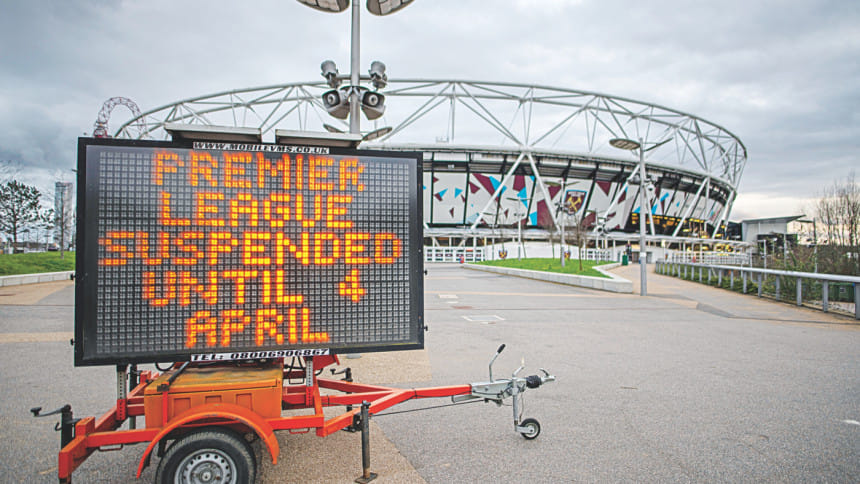An opportunity to reform football

The sporting world has felt the impact of the coronavirus outbreak on an unprecedented level and responded in kind, with players raising millions and preaching safe practices while stadiums were being donated to aid in the fight against the pandemic. Events such as Wimbledon, the Indian Premier League and most of Europe's top leagues have also been postponed or cancelled to curb the spread of the virus.
Such drastic measures -- Wimbledon had not been cancelled since World War II -- were not taken lightly and they will perhaps have some far-reaching impact, particularly on the beautiful game.
Without any salary caps or prescribed limits other than UEFA's Financial Fair Play guidelines, which clubs have regularly flouted anyway, teams have been struggling for the cash to pay their players.
If the season fails to resume, both Manchester clubs and Liverpool stand to lose over €100 million from matchday revenues, broadcasting deals and commercial deals. Barcelona, who reportedly had a wage bill of €391 million this season, stand to lose just as much and have already gotten their players to agree to a wage cut of 70 per cent.
Such losses could have serious repercussions and potentially scupper plans for big-name signings in the transfer window.
"You can't predict what will happen, but I can't imagine any €100 million transfers in the near future," former Bayern Munich president Uli Hoeness told Kicker earlier this week. "The transfer fees will fall and will not be able to remain at the current level for the next two or three years. Because all countries are affected. We most likely have a new football world in front of us."
Bayern CEO Karl-Heinz Rummenigge had similar thoughts, saying: "Every crisis implies a chance, though. Since a long time ago, the transfer fees and salaries have ballooned to unhealthy amounts. The coronavirus and the following worldwide crisis will at least put a stop to this 'more expensive, faster, more' tendency. Supply and demand will regulate and balance the transfer market."
European dynasties aside, smaller clubs may find themselves unable to cope with such a staggering and unforeseen fall in their revenues. They may have to resort to raising funds by selling players but the line of buyers may be far smaller than what they have been accustomed to.
There is also the issue that the transfer window is approaching fast and will perhaps need to be reworked completely or extended well past the start of the next season. Where a season ends and begins is also going to come under scrutiny as contracts usually expire at the end of a season.
FIFA President Gianni Infantino said that there would be a deal to extend all contracts automatically, but players, who are used to five- or six-figure signing bonuses, would not be in favour of such a move, especially after having lost out on wages before. Another problem would be that some teams have already inked pre-contracts effective from July 1, such as Hakim Ziyech, who is set to move from Ajax to Chelsea.
Infantino added some more ideas to the mix in his conversations with Corriere dello Sport, although he did not elaborate far enough to paint a clear picture. "We can perhaps reform world football by taking a step back. With different formats. Less tournaments, but more interesting. Maybe fewer teams, but more balanced. Less games, to protect the health of the players, but more competitive."
Although there could be a silver lining, or so believes Everton manager Carlo Ancelotti.
"We are living through something none of us were used to and which will change us profoundly. TV money will go down, players and coaches will earn less. Tickets will cost less because people will have less money. The economy will be different and so will football. Maybe it will be better."

 For all latest news, follow The Daily Star's Google News channel.
For all latest news, follow The Daily Star's Google News channel. 



Comments